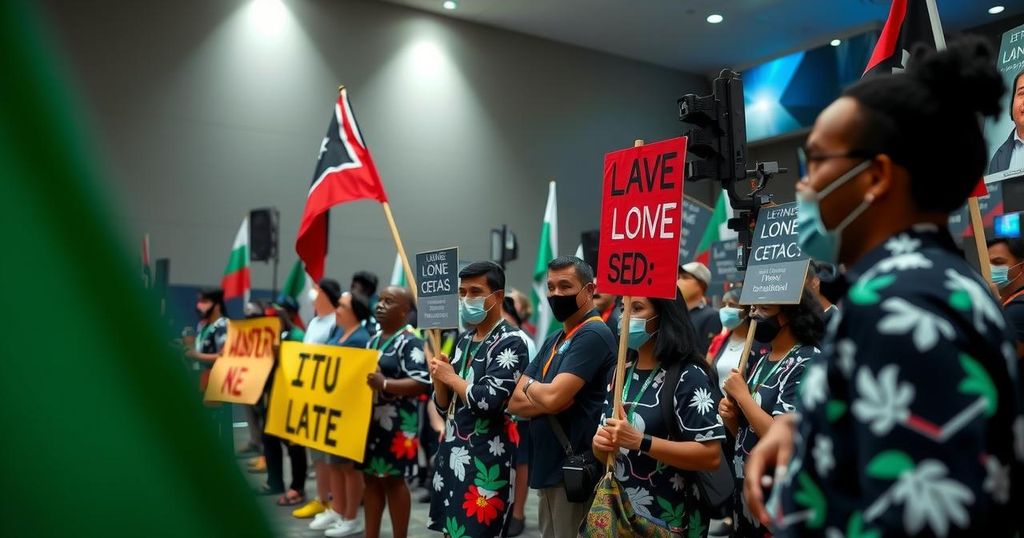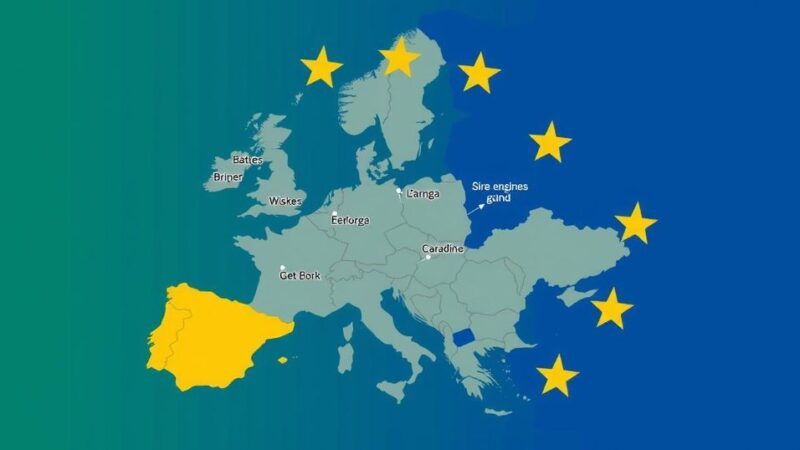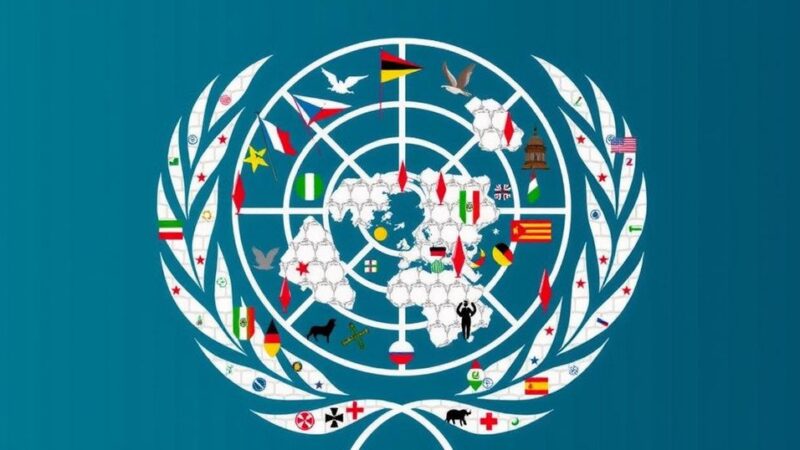Papua New Guinea, led by Foreign Minister Justin Tkatchenko, has decided to boycott the UN Climate Change Conference COP29 due to perceived ineffectiveness and frustrations with the lack of tangible outcomes from previous events. The conference, beginning November 11 in Baku, Azerbaijan, aims to address the transition from fossil fuels and discuss climate financing.
Papua New Guinea has announced its decision to boycott the upcoming UN Climate Change Conference, COP29, as stated by the nation’s Foreign Minister, Justin Tkatchenko. In an interview with the AFP news agency, Tkatchenko expressed that attending the conference would be futile, particularly when the circumstances of travel would inhibit productive participation due to fatigue. He remarked, “There is no point in going there if we fall asleep because of jet lag because we don’t achieve anything.” The minister voiced his frustration with the conference’s outcomes, asserting that the commitments made by major polluting countries often lead to financial allocations that benefit consultants rather than delivering tangible climate solutions. Furthermore, he criticized the proceedings of the conference as a “total waste of time,” lamenting the persistent cycle of unfulfilled promises over the past three years. The COP29 conference is set to commence on November 11 in Baku, Azerbaijan, with objectives aimed at expediting the transition away from fossil fuels and discussing the financing of climate protection initiatives. The subsequent COP30 event will take place in Brazil next year. Papua New Guinea holds significant ecological importance as it houses the world’s third-largest expanse of rainforest, often referred to as the “lungs of the earth.” Despite this critical environmental standing, the coastal nation faces immense challenges, including poverty and vulnerability to natural disasters. These factors contribute to its heightened susceptibility to the effects of climate change, exacerbating the urgency for effective global climate action.
The UN Climate Change Conference, particularly COP29, represents a critical international platform where nations convene to discuss and advance efforts aimed at combating climate change. This includes setting goals for reducing greenhouse gas emissions, financing climate adaptation measures, and transitioning towards sustainable energy solutions. Countries with rich natural resources, such as Papua New Guinea, while contributing positively to global climate efforts, often find themselves grappling with economic hardships and environmental vulnerabilities that complicate their positioning in international discussions. The frustration expressed by Papua New Guinea regarding the ineffectiveness of past conference outcomes highlights a broader sentiment shared by many nations regarding the need for actionable results rather than mere promises.
In summary, Papua New Guinea’s boycott of the COP29 conference underscores the growing dissatisfaction among vulnerable nations regarding the efficacy of international climate negotiations. As articulated by Foreign Minister Justin Tkatchenko, the persistent failure to deliver substantive outcomes from these conferences has prompted a reevaluation of their participation. The decision reflects a broader call for accountability and meaningful action in addressing the pressing issues of climate change, particularly for those nations disproportionately affected by its impacts.
Original Source: www.bluewin.ch






